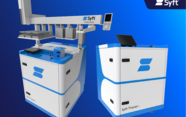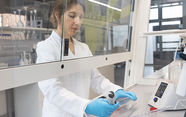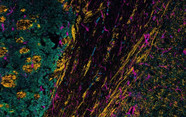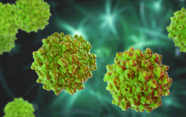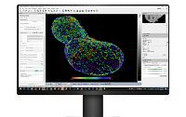The Truth About Personal Genetic Tests
Is direct-to-consumer testing anywhere near as useful as it appears to the public – or to science?
Direct-to-consumer genetic tests like 23andMe have evolved substantially in the last decade, faster than society’s ability to comprehend their medical, scientific, and ethical implications.
The path for 23andMe has been a rocky, convoluted one as it initially struggled to balance its business interests with regulatory requirements. The company started with a much larger 250+ gene assay that, in addition to testing for genetic ancestry and lighthearted traits, such as eye color or the ability to smell asparagus, tested for BRCA genes and genes associated with alcoholism, obesity, Alzheimer’s and Parkinson’s. In November 2013, 23andMe was temporarily shut down by the FDA for failing to prove its assays were accurate and reliable despite numerous requests. It was a harsh but necessary move by the FDA. As any physician knows, the first questions about any assay are: how reliable it is? What are the positive and negative predictive values? Is the result clinically meaningful?
The 23andMe health testing kits were reincarnated in October 2015 with a much smaller but better validated group of tests for personal genetic health risk and carrier status, with varying clinical utility. The fun trait tests for the alcohol flush reaction or sneezing with sunlight exposure are largely the same and remain good office water cooler talk but have limited health or practical value. The carrier tests include assays for sickle cell anemia, thalassemias, and cystic fibrosis, which could be useful depending on one’s ethnicity and family history.
The personal genetic health risk tests are largely of questionable clinical value. Three conditions tested for, Alzheimer’s disease (APOε4), Parkinson’s disease (LRRK2 and GBA), and age-related macular degeneration (CFH and ARMS2) are 100 percent nonpreventable in an asymptomatic person without these diseases. Though there are methods to slow their progression once the disease is established, these interventions do not prevent the disease from occurring in the first place. Thus, knowing your risk sooner won’t help you prevent the disease and could be needlessly distressing. Despite common thinking, it can hurt to know more. Similarly, the hereditary thrombophilia tests (Factor V Leiden and prothrombin G20210A test) are of little value in someone with no personal or family history of thrombosis. The remaining three diseases tested for, celiac disease (HLA-DQ A1 and HLA-DQ B1), alpha-1 antitrypsin deficiency (SERPINA1) and hereditary hemochromatosis (HFE) have potential to be clinically actionable results. How often these tests detect a disease that would otherwise have been missed or detected later remains to be seen. The pervasive assumption that early diagnosis is always better isn’t always true. For example, many patients with hereditary hemochromatosis don’t yet have iron overload and don’t benefit from early detection.
Earlier this month, the FDA authorized 23andMe to report BRCA mutations to its consumers for the first time. Given the high profile of breast cancer and BRCA mutations in the media and among the general public, I expect 23andMe kits to fly off the figurative digital shelves as a result. However, a deeper look reveals that the two BRCA1 and one BRCA2 variants tested occur most commonly in the small Ashkenazi Jewish population and are otherwise uncommon. How useful will these tests be for the general population? My greatest concern is that a negative result on a home test might dissuade women from obtaining appropriate breast cancer screening. Additionally, will women with positive results have access to affordable genetic counseling to make sense of their results? It is clear that 23andMe will profit from more consumers buying their kits to get their BRCA results – but some (perhaps even most) consumers may not benefit from this small, three-gene panel. A broader panel for a larger number of BRCA variants, on the other hand, could be instrumental in breast cancer prevention.
The future of home personal genetic testing is filled with both peril and promise. The danger lies in how much genetic data companies store and sell access to other organizations. Indeed, 23andMe shares their data with several universities, including Harvard and Stanford, companies like Pfizer and Genentech, and several Parkinson’s disease nonprofits. The reports shared with consumers are a mere fraction of genetic data generated and shared with these outside organizations. If health or life insurance companies obtained the same information, it could have catastrophic financial consequences for consumers with genetic predispositions for serious or costly illnesses. Employers could also discriminate against certain job applicants based on genetic data. Government regulations currently prevent these problems, but hacking or legal maneuvering around these regulations and the informed consent process could put powerful genetic data in the wrong hands. Conversely (and much more positively), the large repository of genetic data could lead researchers to some amazing discoveries. Traditional research involves identifying patients with a disease and retrospectively looking for genetic causes of that disease. A large, population-level genetic database could help us prospectively identify subpopulations at high genetic risk for serious diseases. Pharmacogenomic data could also help us individualize drug choices and dosing to maximize efficacy and minimize toxicity.
The All of Us research program through the NIH aims to compile a large genetic database similar to that of 23andMe, but as a nonprofit, academic endeavor. Will it protect participants’ genetic privacy better than for-profit companies like 23andMe?
For now, personal genetic tests are mostly cute technological novelties with limited health value. Whether they will lead to medical breakthroughs, catastrophic breaches of privacy – or both – remains to be seen.
Suneel Deepak Kamath is Hematology/Oncology Fellow at Northwestern Memorial Hospital, Chicago, Illinois, USA.







